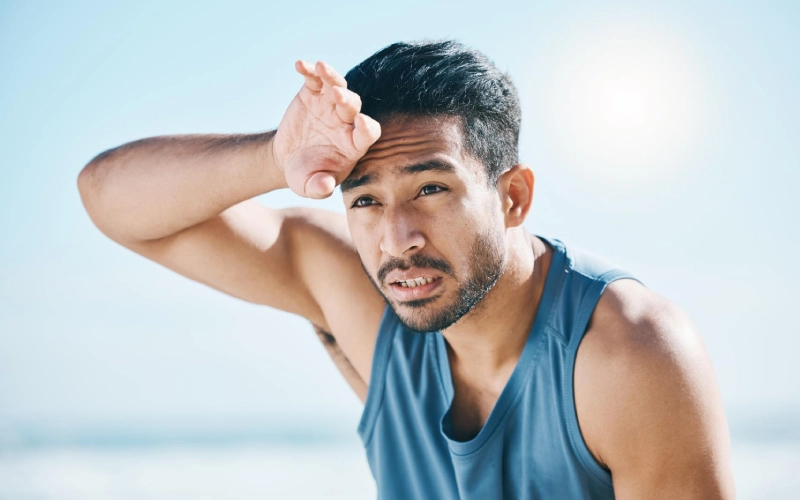- Published on: Sep 19, 2022
- 3 minute read
- By: Second Medic Expert
How To Naturally Lose Weight Fast
There are lots of ways to lose weight fast, but most of them are unhealthy or unsustainable.
A healthy and sustainable way to lose weight is to make small changes to your diet and exercise routine that you can stick with over time. For example, try eating more fruits and vegetables, cutting back on processed foods, and getting regular exercise.
There are a few key things to keep in mind when trying to lose weight naturally. The most important is to make sure that you are eating healthy foods and avoiding processed foods as much as possible. It's also important to be active and get plenty of exercises. Here are a few other tips for losing weight naturally:
? Drink plenty of water – Dehydration can often be mistaken for hunger, so drinking plenty of water can help you avoid snacking unnecessarily.
? Avoid sugary drinks – Sugary drinks like soda and juice are loaded with empty calories and can cause weight gain over time.
? Eat regularly throughout the day – Eating frequently throughout the day helps keep your metabolism running high,
There is no single "fast" way to lose weight, as everyone's body and metabolism are different. However, there are several ways to lose weight naturally that can help you see results in a relatively short period of time. Here are a few tips:
- Cut out processed foods and eat more whole, natural foods. Processed foods are high in sugar, salt, and unhealthy fats, and they have been linked to obesity and other health problems.
- Increase your intake of fiber. Fiber helps regulate digestion and can help you feel fuller longer, leading to decreased calorie intake and subsequent weight loss. Fiber can be found in fruits, vegetables, legumes, nuts, and whole grains.
By naturally losing weight fast, we mean losing weight without starving yourself or going on a crazy diet. There are actually a few ways to do this, but the best way is probably to eat more natural foods and to avoid processed foods as much as possible.
Processed foods are usually high in sugar, unhealthy fats, and sodium, and they provide very little nutritional value. Conversely, natural foods are low in sugar, healthy fats, and sodium, and they provide a wealth of nutrients that are essential for health and wellness. When you eat natural foods instead of processed foods, your body will eventually adjust its metabolism so that it starts burning stored fat for energy instead of glucose.
There is no one-size-fits-all answer to this question, as the best way to lose weight naturally depends on your individual metabolism and body composition. However, some tips on how to lose weight naturally include eating a healthy diet full of nutrient-rich foods, avoiding processed foods and sugary drinks, practicing portion control, and getting regular exercise. Additionally, drinking plenty of water and herbal teas can help flush toxins from the body and boost metabolism. There is no one-size-fits-all answer to this question, as the amount of weight you can lose naturally will vary depending on your individual metabolism and lifestyle. However, there are certain things you can do to help speed up your metabolism and promote natural weight loss.
Reducing processed foods and eating more natural, fiber-rich foods is a good way to start. Another key is to make sure you're drinking enough water, as dehydration can often be mistaken for hunger. Try to avoid eating late at night, as this can lead to weight gain. And lastly, make sure you're getting enough exercise. All of these things will help you lose weight in a healthy way without depriving yourself or starving yourself.
When you eat real food, your body knows how to process it. It knows how to break down the fiber, extract the nutrients, and use them for energy or storage. But when you eat processed foods—foods that are made in a factory, with ingredients that you can't even pronounce—your body doesn't know what to do with them. These foods force your body to work harder than it should have to in order to extract any nutrition from them. They also tend to be high in calories and low in nutrients, which can lead to weight gain over time.
Eating real food means eating food that is minimally processed and as close as possible to its natural state. This includes things By naturally losing weight fast, we mean losing weight without starving yourself or going on a crazy diet. There are actually a few ways to do this, but the best way is probably to eat more natural foods and to avoid processed foods as much as possible.
Processed foods are usually high in sugar, unhealthy fats, and sodium, and they provide very little nutritional value. Conversely, natural foods are low in sugar, healthy fats, and sodium, and they provide a wealth of nutrients that are essential for health and wellness. When you eat natural foods instead of processed foods, your body will eventually adjust its metabolism so that it starts burning stored fat for energy instead of glucose.










